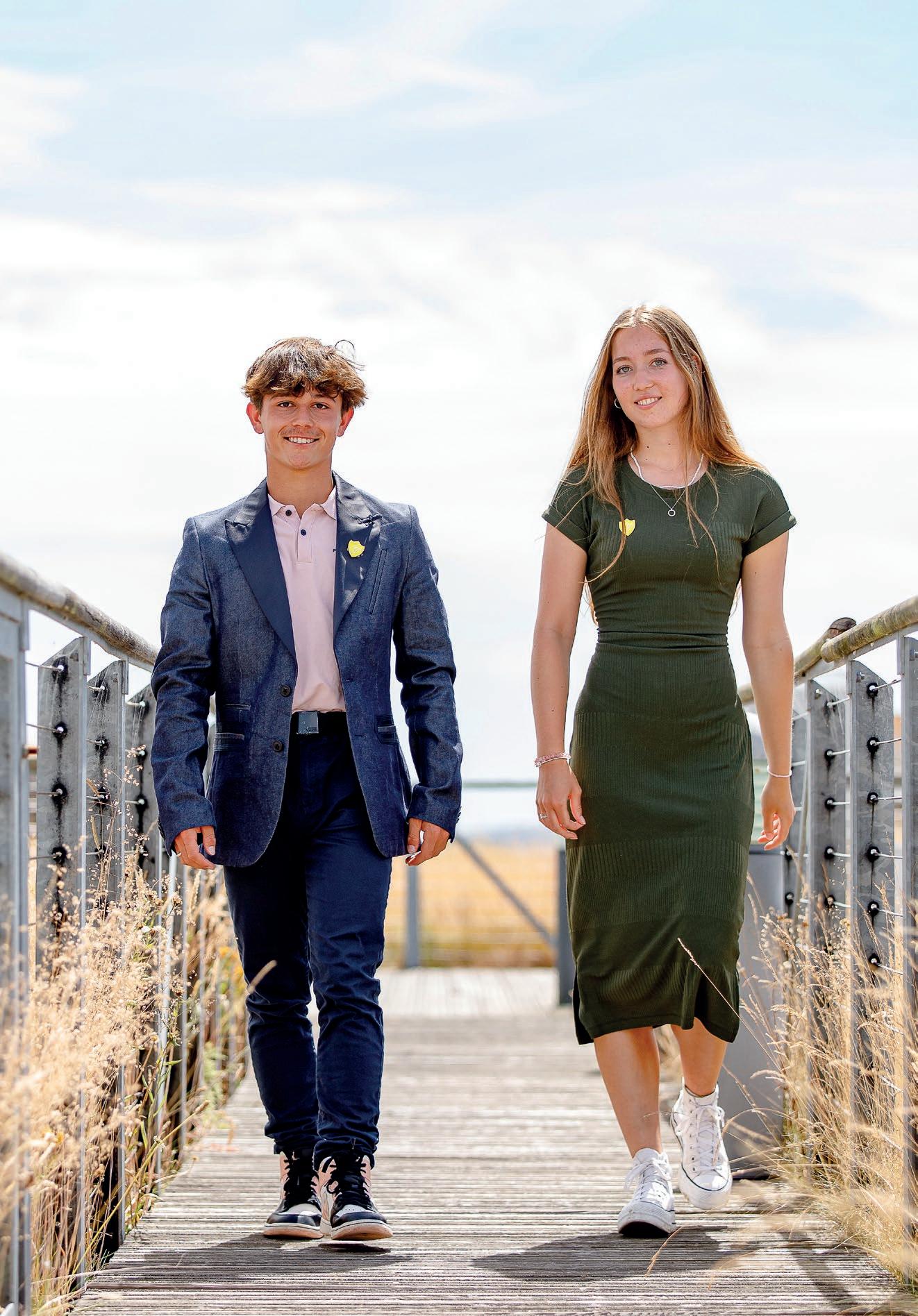PROSPECTUS



Your sixth form experience is about more than your subject choices –it’s about the next chapter of your life, your route to an exciting new world. At Cowes Sixth Form we want to further your passion to learn, and encourage your desire to explore and develop in a learning community that is vibrant, challenging and caring.
“ Without the support I received from staff at Cowes Sixth Form, I would not have applied to Cambridge University. The mock interviews they conducted pointed out my strengths and weaknesses therefore helping me to improve.”
Amelia Andrade, Trinity Hall, Cambridge University, History

Cowes Sixth Form was judged good by Ofsted in its 2017 inspection and recent results have been praised nationally by the schools minister.
Pre-Covid, the percentage of our students achieving AAB or higher was 27%, which places us top of all schools in the Hampshire and Isle of Wight region and in the top 6% of all sixth form schools and colleges nationally. Students continue to make strong progress each year.
Whatever your aspirations, the individual package of support you will receive at Cowes Sixth Form will ensure that you have the right blend of courses, support and enrichment opportunities.
The best way to experience us is to see our sixth form for yourself – so come along to our events or induction days. In the meantime our prospectus is full of all the information we think you’ll need.

Welcome
Your new world
Working towards your future
passion and commitment
sixth form life
sixth form campus
future career
Your sixth form application
learning
Extended Project Qualification (EPQ)
Combined Cadet Force (CCF)
Young Enterprise
Duke of Edinburgh’s Award
Why Cowes Sixth Form?
challenge
support
Subjects
and Humanities
Business and Law
and Mathematics
Sciences
Education
your A-level subjects
25
“Congratulations to all the pupils and staff at Cowes Enterprise College and the wider team at Ormiston Academies Trust, on such an impressive set of results. A-level results day marks the moment so many young people will make choices that can shape the rest of their lives, so whatever path they choose, every pupil at Cowes Enterprise College should do so full of confidence.”
Lord Agnew, former Schools Minister (2017–2020)
Your journey to independence begins with Cowes Sixth Form.
We are your route to a brighter future; a place to work, relax, socialise and develop ideas with other like-minded and independent young people.
Expand your interests through the rewarding experiences we offer beyond our learning community. As a central part of our Sixth Form Charter, our students are tasked with making an impact in the community. We offer extensive opportunities for volunteering and access to the wealth of enrichment

“
opportunities on offer in Cowes, across the island, in Southampton and beyond.
Here at Cowes I’ve been able to play a key role in collaboration with Isle of Wight councillors, devising sustainable energy policies and providing youth voice for consultation. Young Enterprise and The Duke of Edinburgh schemes have also been fantastic opportunities.”
Mimi Poulton, Selwyn College Cambridge University, History and Politics
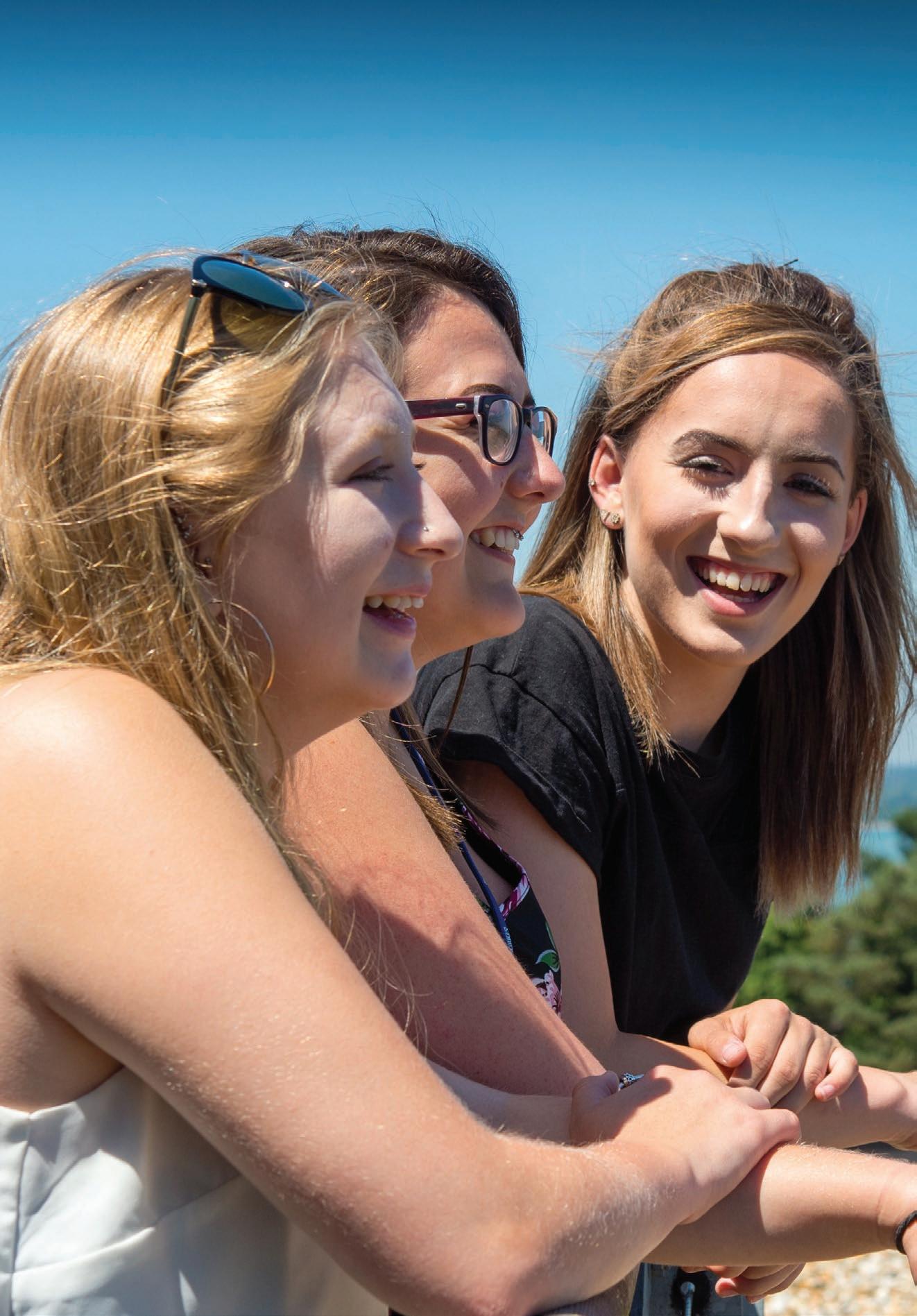
Preparing you for life beyond sixth form goes hand in hand with your studies at Cowes Sixth Form.
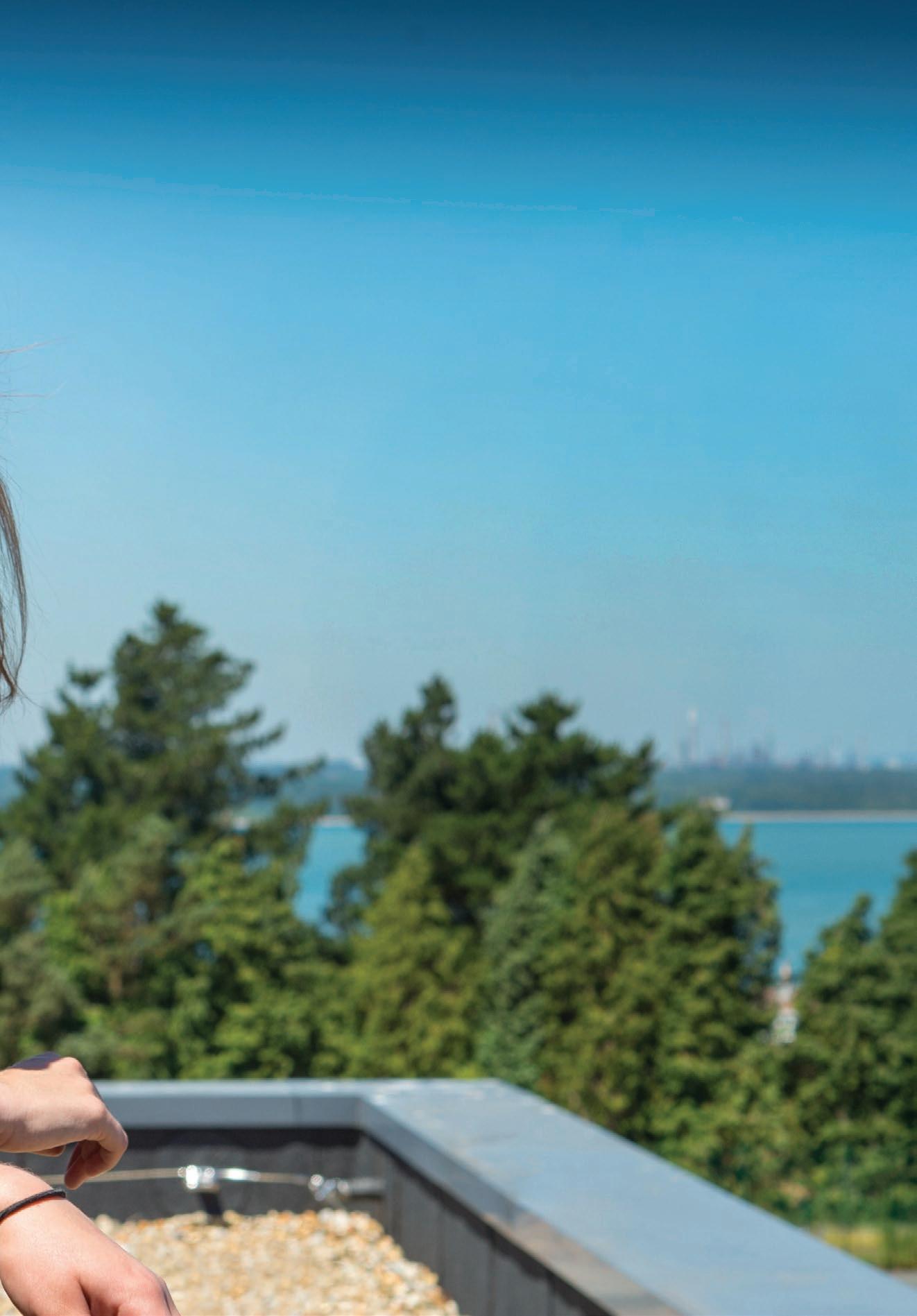
By undertaking extensive careers education and advice, dynamic work experience opportunities and forging network links with local business and enterprise, you can develop skills in the workplace alongside your learning.
At Cowes Sixth Form we recognise that getting excellent qualifications goes way beyond lesson time, it is about hands-on experience too.
Our strong employability links give you an advantage when it comes to enriching your studies. With us, your bespoke work placement will run within our timetable, with, for instance,
our medical students having weekly placements at hospitals during the school day.
Many students choose a workplace experience aligned to their course options while others try out a completely new working environment. The opportunity is a platform for you to show-case what you can do and discover who you could be.
Whether you come back confident that you know where you are headed, or full of questions over what your future might hold, you will receive the guidance you need at every stage from our Careers Leadership Team. We ensure you are fully informed by providing independent careers advice through our close relationships with independent careers services and university networks.
At Cowes Sixth Form we educate for life and want you to believe that your studies will not only change your own lives but other people’s too. We want you to be passionate about your subject choices, eager to learn, inquisitive in your research and thorough in your work.
We want you to take feedback on board and work hard to make your dreams realities. We will support you in these expectations but it is essential that you bring commitment and dedication to your studies at this level.
A work-life balance is an important part of getting the most from your sixth form experience.
We provide a wealth of social and leisure activities, as well as help and support with your studies.

Making the most of your time here in Cowes will be what makes your experience a lot more than just gaining excellent qualifications. We want to help you make memories and friendships for life as well as prepare you for your chosen university course, apprenticeship or career.

We offer a myriad of activities and opportunities including participation in mock trials and debating and a wide
range of sports, stage and media productions and social events to name but a few.
We enable our sixth formers to develop confidence, selfmotivation and leadership skills through our rich curriculum opportunities and enrichment activities. Each year a range of leadership opportunities is available to you, such as becoming part of the Sixth Form Student Leadership Team, running or supporting clubs and activities for younger
students or taking part in our sporting events.
Cowes is perfectly positioned to give you every opportunity to enjoy that all-important downtime, from a bustling common room and high street to the calm oasis of the open green spaces of our campus. Cowes Sixth Form benefits from its coastal location, numerous outdoor pursuits and close links with Southampton, opening a world of excellent shopping, arts venues and exciting entertainment.
“Living on an island can seem closed off at times but being at Cowes Sixth Form has opened my eyes to broader horizons and opportunities ahead.”
Esme Tiling, Exeter University, English Literature

Cowes Sixth Form is located within our multi-million pound state of the art building designed to provide inspirational and practical bespoke facilities and learning spaces. Relax in our lively and welcoming sixth form common room, the perfect place to grab a refreshment and catch up with friends during breaks and lunch.
Undertake research and revision in our spacious sixth form study areas, equipped with cutting edge ICT.
Refuel within our dedicated sixth form canteen or by making the most of our close proximity to the cafés and restaurants of Cowes.
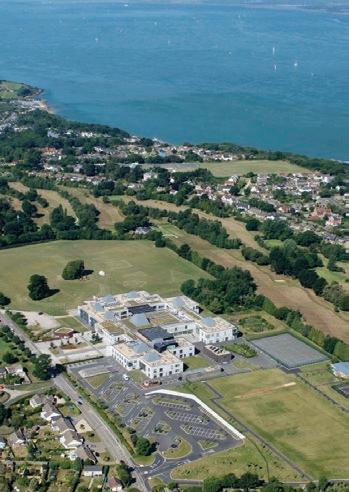
Invigorate through our professional sports facilities which feature a state of the art 3G artificial floodlit pitch, extensive playing fields, two large, fully equipped sports halls and a dedicated dance studio with sprung floor. In addition, enjoy our partnerships with local gyms and sports venues including professional clubs. We cater for all levels of sporting prowess, from county athletes and sporting junior elites to those who just enjoy an occasional keep fit class or the competitive spirit of team sports.
Express your creativity within our dedicated sixth form art, music, media and drama studios. With each featuring industry standard
facilities, we ensure that you are fully prepared for the rich opportunities available to you within the creative industries.
Explore the wonders of science in our dedicated sixth form laboratories. These feature bespoke equipment enabling, for instance, electrophoresis, aseptic science and DNA fingerprinting.

“
Teachers encourage you to be the best you can be and the careers support has been invaluable.”
Izzy Rothwell, NHS nursing apprenticeship
Our dedicated careers team is ready and available to help you realise your potential through a wealth of opportunities beyond your core studies.
Shaping your future doesn’t start from the moment you leave sixth form, it begins right now. Whether you are secure in your direction or are unsure about where your studies might take you, our careers team can help you on your journey.
Through our strong links with business and highly valued reputation in industry we provide numerous
opportunities to help you realise your potential. We tailor a bespoke careers education for you to ensure you receive the opportunities, experiences and skills development to take you closer to your dream future.
We attract a large variety of universities, employers and apprenticeship providers to our campus through our extensive programme of careers fairs, networking and Russell Group events. A highlight of our year is the STEM-based Science Festival and we also run Young Enterprise and Extended Project Qualification (EPQ)
Cowes Sixth Form is delighted to have been presented with the prestigious Quality in Careers Standards award, in recognition of the wide range of career programmes and support offered to students.

evenings, where students showcase their work.
We understand that some students need a greater level of support to get to where they aspire and offer intervention and bespoke assistance where helpful. The vast majority of our students who apply to university gain their first choice and we achieve above national average enrolment to Russell Group universities across wide ranging courses. We also offer a specific support programme for Oxbridge, medicine, veterinary and dentistry candidates.

“Superb visit to Cowes Enterprise College – thank you for showing me how you pair the highest of academic expectations with brilliant practical careers work.”
Susan Acland-Hood, Permanent Secretary, Department for Education
September to October
Research. Read our prospectus, check out our website and speak with teachers and parents about your future subject and career options.
November
Visit our open event to experience what life as a Cowes Sixth Form student could be like. Gain information and advice by contacting our inspirational sixth form team.
December
Complete application process by visiting our website and reading our prospectus.
January to March
Attend guidance interview meetings with our enrolment team. Discuss your application, predicted grade profile and future aspirations beyond sixth form.
May
Receive your conditional offer and start the exam season.
July
Attend our induction day and experience what life as a sixth form student will be like, make new friends and discuss course options with our highly talented subject teachers.
August
Results and enrolment day! Celebrate your success and complete the enrolment process by meeting with our enrolment team for a bespoke one-to-one guidance interview.
September
Begin your sixth form adventure – your path to a brighter future. Final enrolment available for students by prior arrangement.
“At Cowes Sixth Form it is easy to find calm and quiet places to study and concentrate.”

Playing an active part in your learning is central to our teaching and learning philosophy at Cowes Sixth Form; we offer much more than just a traditional learning environment.
Our teaching staff want to inspire you to learn, to question, to challenge and to create.
In addition to offering field trips, laboratory studies, work visits and placements in both the public and private sectors, we focus on the development of your transferable skills. Our curriculum ensures you are able to hone skills such as oracy, teamwork, communication and project management.
You will also develop your independent study skills through a programme of structured learning activities and extended projects requiring time management, task prioritisation, strategic planning and adherence to strict deadlines. You will be challenged intellectually and encouraged to develop your ability to work and learn independently – all skills that you will take with you in your chosen career.
At Cowes Sixth Form we provide all students with an individual Office 365 account. Office 365 is a cloud service which provides each individual within our learning community with a whopping 1TB of cloud-based data
storage and downloadable, full versions of Microsoft Office software for multiple devices.
With Wi-Fi across our campus, you can access learning materials on the move. We provide a wide range of online resources, including specialised materials to complement your specific learning needs. These also give you the opportunity to interact with inspirational teachers and enable rewarding group project work.

“ My teachers at Cowes Sixth Form were extremely supportive, especially with my UCAS applicationI felt totally prepared for my exams and university.”
Grace Lane, Bath University, Mathematics
Thomas Coates-Evans, Bath University, Physics
Completing an EPQ gives you a head start in your research-led education and independent study. The skills gained in academic research, report writing, presentation and referencing will prove vital during your future degree, apprenticeship or career.
Equivalent to half an A-level, an EPQ requires students to complete a self-directed and self-motivated project on a topic of their choice. This can either be a research-based, written report or dissertation, a performance, design or artefact.
The CCF is an exciting initiative for you to develop employability and life skills and helps build an excellent
personal statement for the future. There is an extensive range of activities on offer such as weapon handling, adventure training, leadership overnight and weekend exercises.
Cadets also gain recognised qualifications such as the BTEC in Teamwork and Personal Development in the Community or the ILM Level 3 Award in Leadership and Management. Cowes Sixth form students play an integral part in our Combined Cadet Force consisting of two sections Army and RAF.
At Cowes Sixth Form, we offer students the opportunity to participate in the Companies Programme and develop the skills and expertise to become leading entrepreneurs of the future. Running throughout one academic year, students make all the decisions about their enterprise, from deciding on the name and product to creating
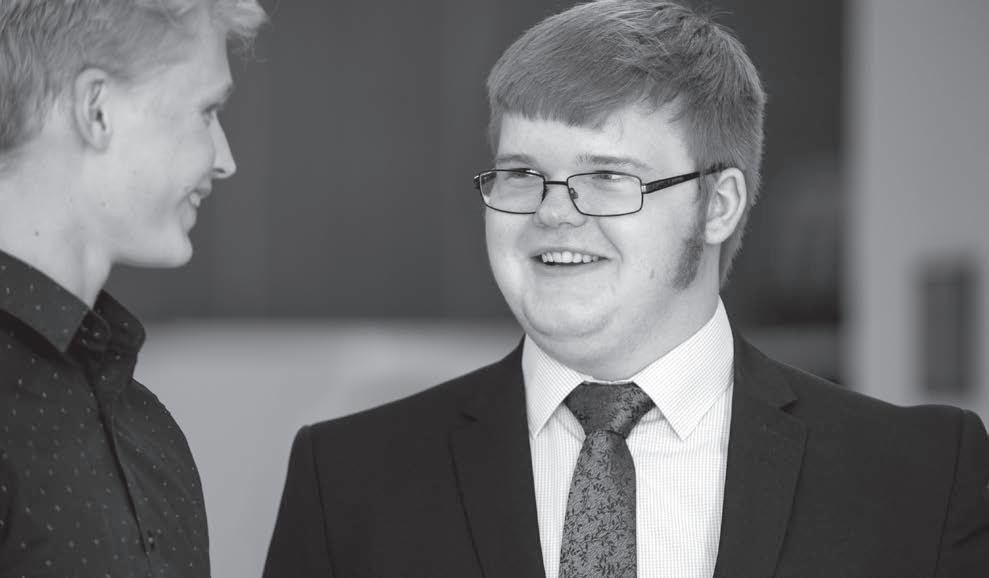
a business plan, managing the student company finances and selling to the public at trade fairs. Teams track their progress using self-assessment tools and even compete against other schools in local, regional and national competitions.
All this takes place with the support of a volunteer business adviser who brings a wealth of business knowledge and expertise. A range of resources are provided to help manage the company.
Cowes Sixth Form is committed to providing all three levels of the Duke of Edinburgh’s Award – Bronze, Silver and Gold. Students who achieve the award demonstrate resilience, commitment, problem solving and strategic planning over a sustained period of time.
“
Prospective universities and employers value self-confidence and personal competence. My UCAS application was really strengthened by the development of my leadership skills.”
Duke Peters, University of East Anglia, Medicine
Cowes Sixth Form was judged good by Ofsted in its 2017 inspection and recent results have been praised nationally by the schools minister.
Pre-Covid, the percentage of our students achieving AAB or higher was 27%, which places us top of all schools in the Hampshire and Isle of Wight region and in the top 6% of all sixth form schools and colleges nationally. Students continue to make strong progress each year.
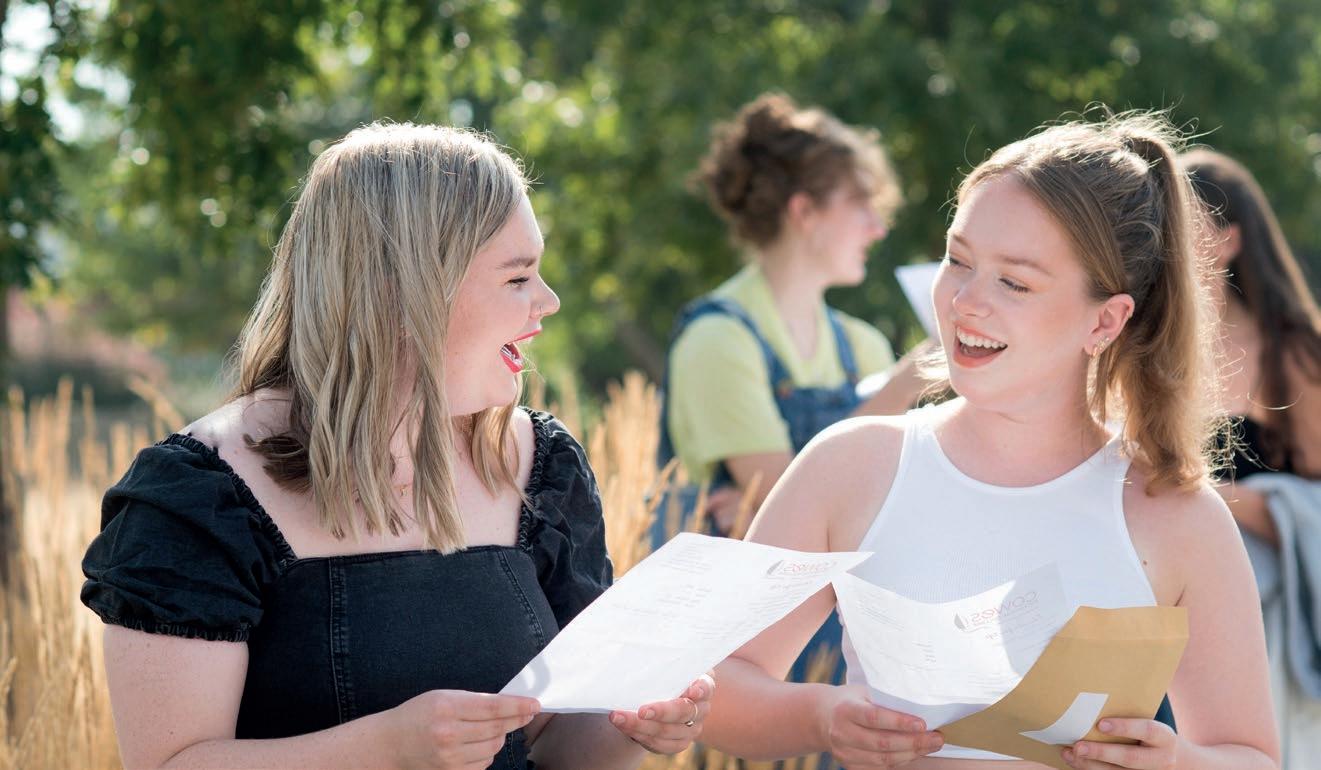
Cowes Sixth Form enjoys particularly close links with Russell Group universities and the Sutton Trust to enable students to successfully gain places at highly competitive summer schools at the end of year 12 and then progress to aspirational degree courses. Our university and apprenticeship preparation programme has a proven track record in supporting students to achieve the most aspirational apprenticeships and degree courses. The past three years have seen our students gain incredible undergraduate degree places at prestigious universities including:
Merton College, University of Oxford St. Hugh’s College, University of Oxford
Gonville and Caius College, University of Cambridge Trinity Hall, University of Cambridge Selwyn College, University of Cambridge
Peterhouse, University of Cambridge Imperial College London University College London Durham University
Loughborough University University of Warwick University of Bath Lancaster University University of Manchester University of Exeter University of Southampton University of Bristol University of York University of Birmingham University of Sheffield and many more.
As a Cowes sixth form student, you will be presented with a wealth of opportunities to stretch yourself intellectually including Olympiads for Mathematics, Mock Trial Competition, Literary Festival, Young Enterprise Companies Programme, Noel Turner Science Festival, Senior Maths Challenge and Debating Symposium.
Through our Charter, we enable you to seek intellectually enriching opportunities and experiences such as work placements, university visits, interview and exam preparation masterclasses, inspirational speaker tours and industry professional mentoring.

University application: Our university support programme begins in your first term at Cowes Sixth Form. We have excellent partnerships with universities including University of Southampton, University of Cambridge, University of Oxford and the Southern Universities Network (SUN). You will have opportunities to attend taster days, master-classes and residentials on campus. We offer regular visits from university outreach teams who deliver support and presentations on how to complete university applications and apply for student finance. Our expert team will work with you on an individual basis to ensure you write the most effective personal statement and have the understanding and knowledge required to make a successful application to your dream university.
Aspire is our dedicated Oxbridge preparation programme designed to provide essential information and support for Oxbridge applicants and to offer expert guidance and tailored feedback to help you throughout the application process. Every year our students are successful in their summer school applications to Oxford and Cambridge universities. The Aspire programme will prepare you for the preentrance exams and interviews through rigorous
mock interviews and specialist one to one support from both our alumni currently studying at Oxbridge colleges and our highly experienced head of sixth form who is a Cambridge graduate.
AspireMed is our specialist Medicine preparation programme which provides you with expert, bespoke information, advice and guidance to enable you to succeed in your application to medical school. We specialise in ensuring you have access to the very best medical work placements through our partnership with St. Mary’s Hospital. Our medicine alumni and specialist university application team provide support with UCAT, BMAT and lead you thorough the varied interview process. We provide rigorous mock exam and interview experience and access to the elite medicine summer schools to ensure your successful application.
AspireLaw is our expert support programme for law degree preparation which provides the information and experiences required to make a successful application to a law degree. We run highly successful debate and championship Mock Trial competition teams. Our specialist university support package will assist your preparation for the LNAT and provide mock interviews and exam support. You will have access to our alumni currently reading law degrees to provide you with information, advice and guidance about the intricacies of the law application process.
We understand that the transition to sixth form can be exciting but also challenging and we offer a wealth of support and guidance to help you settle into your sixth form routine and make the most of the opportunities before you.
Everyone Matters curriculum : Throughout your time at Cowes Sixth Form, you will have an additional timetabled lesson every week through our dedicated personal development curriculum. Lessons cover a range of age appropriate topics to keep you safe, healthy and ready for life and all it holds.
Personal form tutors: Your form tutor will be a key contact and source of support and guidance throughout your sixth form adventure. They will work with you individually to monitor your progress and attendance and will be a key part of the team helping you to decide your future plans.
Academic tutors: Your subject teachers will work closely with you to ensure that you are making the best progress possible. They will tailor learning experiences to your individual needs and work with you on a bespoke basis to enable you to overcome challenges and succeed in your chosen subjects.
Student leadership: Sixth form student leadership is central to the smooth operation of our successful sixth form. Our sixth form
student leaders organise student events, provide a powerful student voice to the academy leadership and lead student leadership for all year groups in the academy.
Student support fund : If you feel you have difficulty meeting the specific financial costs of attending sixth form, you may be eligible for financial help from the 16–19
Bursary. This is a cash-limited fund, so payments will be targeted at supporting travel costs, books and equipment. Free College meals are also available for those who meet the eligibility criteria. Application forms and further information are available from the academy website and if you need help applying, we are here to provide it for you.
Counselling services: We have a team of professional, highly skilled Mental Health Practitioners who are able to support our students in times of need. Cowes sixth form is proud to have received the Wellbeing award in recognition of our dedication to supporting wellbeing among our sixth form community and we strive to ensure that wellbeing and promoting positive health is at the heart of all we do.
Enrichment : Through our Charter, we enable you to undertake the exciting enrichment opportunities that best suit your interests and support your future aspirations, including supporting you
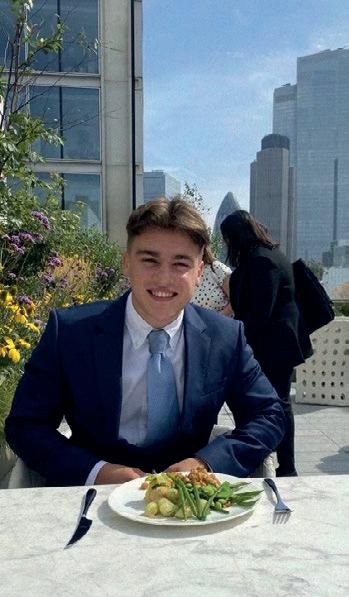
in volunteering and work experience opportunities to strengthen applications. As a Cowes Sixth Form student, you also have access to a rich and varied range of clubs, sports teams and creative groups, ranging from the annual production to the pool tournament and Masterchef competition to sixth form sailing club.
Careers education and guidance: Cowes Sixth Form is delighted to have been presented with the prestigious Quality in Careers Standards award, in recognition of the wide range of career programmes and support offered to our students. Our dedicated team are available to assist with your career enquiries and to support your applications to university, apprenticeships and employment.
The A-level Art and Design course includes a detailed introduction to a wide range of media and techniques, allowing you to experiment, explore and discover your strengths. You will then use these skills to work independently, creating a set of work, using whatever media and techniques you choose. You will learn to develop ideas over time using artists and designers as inspiration. You will also explore your ideas through research and writing based on your practical work.
You will develop your product design skills in a hands-on approach through practical projects, working with a variety of materials such as wood, plastics and metals. You will gain skills using a wider variety of workshop tools, also branching into a more in-depth knowledge of CAD and CAM (computer aided design and computer aided manufacturing).
Art and Design/Product Design
GCSE grade 5 across subjects including English and Maths. Ideally grade 6 in Art.
Art and Design/Product Design
Typical A-level combinations include: Film Studies, Drama, English Language and/or English Literature, History.
Possible degree options include: Fine Art, History of Art, Design Technology. Art and Product Design are closely allied and some universities do not wish students to study both.
Many fields of work need creative, imaginative employees who pin their thinking in research and careful thought and exploration. An Art and Design A-level will allow you to apply for work or a degree course at university in a wide range of fields such as digital design, multimedia art and design such as web design, photography, fine art, graphic design, fashion, animation, interior design, illustration, theatre and exhibition design, or an art foundation course at a college or university.

“I have been thoroughly challenged and well supported in all my subjects whilst at Cowes Sixth Form, the teachers here really care about your wellbeing as well as your progress.”
Adam Baker, Bath University, Mathematics
CHOOSE
Drama and Theatre
GCSE grade 5 across subjects including English and Maths. Ideally grade 6 Drama.
Drama and Theatre
Typical A-level combinations include: English Language and/or English Literature, Film Studies, History.
Possible degree options include: Drama.
Actors communicate characters and situations to an audience through dialogue, body language and actions. Such skills are highly transferable, equipping you with the ability to communicate with confidence and sensitivity in whatever job you decide is right for you. In addition, this course refines your collaborative, analytical and research skills.
Those who choose to pursue drama as a career beyond A-level have a broad range of options to choose from, spanning roles on the stage, in film or television and on the radio, work behind the scenes in drama production or in screen or play writing or teaching.
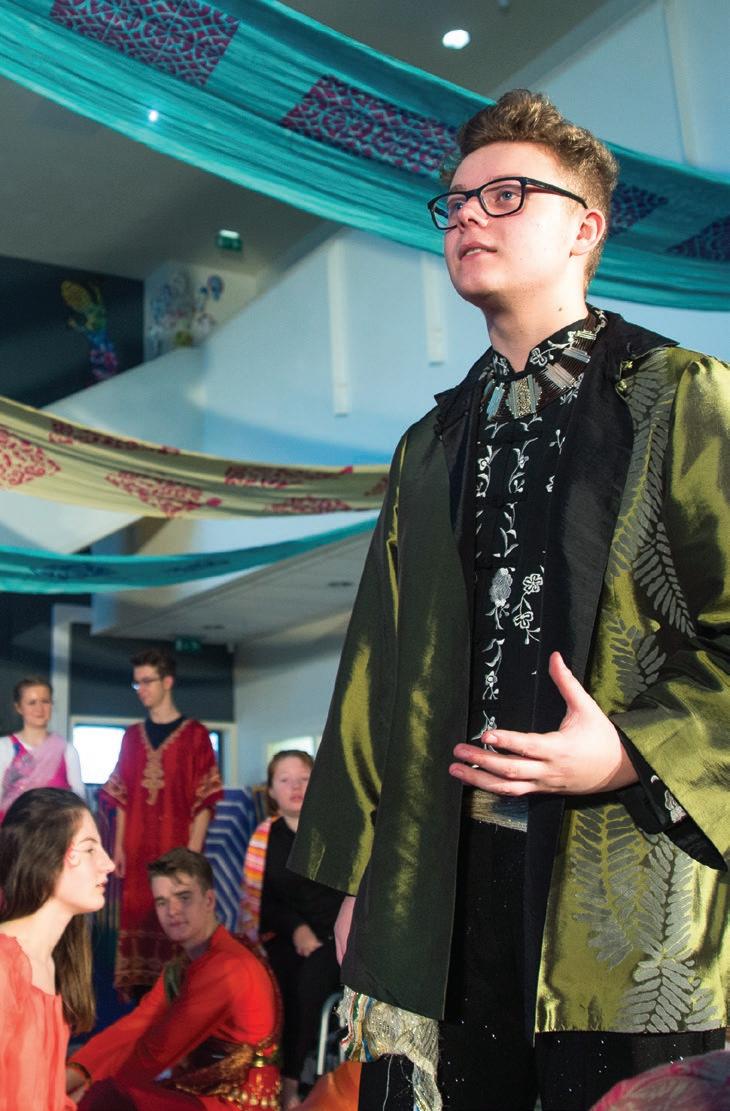
“The performing spaces at Cowes Sixth Form are amazing, teachers get to know you and help develop methods of studying which really worked for me.”
Jessica Rose Roberts, Kings College London, Comparative Literature
Studying the practical, theoretical and technical aspects of theatre in combination offers you an unparalleled opportunity to explore and understand drama’s relevance, considerations and practicalities. The subject content for A-level Drama and Theatre explores drama and theatre, creating original drama and the making of theatre.
A-level English Language is concerned with many different facets of language, from the way we learn to speak to how we use language to assert power and influence on others. You will develop and apply your understanding of the methods used for the study of language, explore data and examples of language in use and develop your skills as a producer of language.
The study of literature is also the study of life. You will read widely and independently, engaging critically and creatively with texts and ways of responding to them. You will develop and apply your knowledge of literary analysis and will explore the contexts and interpretations of the texts you are reading, deepening your appreciation and understanding of English literature, including its changing traditions.
English Language/Literature
GCSE grade 5 across subjects including Maths. Ideally grade 6 English Literature.
English Language/Literature
Typical A-level combinations include: History, Philosophy, Psychology, Sociology.
Possible degree options include: English Language and/or Literature.
A-level English Literature will provide you with communication and research skills valued by employers, and will prepare you for a variety of university courses and careers in many areas.

Students of English Literature often enter fields including professional writing, journalism, entertainment, media, the theatre, publishing, advertising, marketing, law, the Civil Service, and teaching.
Emilia Marinelli, Southampton University, English and History
“I always felt supported and encouraged in developing my learning.”
“Teachers have always cared and dedicated their time outside lessons to help me achieve.”
Jamie Williams, Southampton University, Civil Engineering
GCSE grade 5 across subjects including English and Maths.
Typical A-level combinations include: Art, Product Design, Drama, English Language.
Possible degree options include: Media, Film Studies.
Students studying Film find the course equips them for a wide range of future careers including broader creative fields, management, teaching and the Civil Service.
Following a degree in Film Studies you could enter a variety of careers in television, film, journalism and the creative industries.

“Working closely with other students to develop my own short film was the highlight of the course for me. I grew confident with using the film and TV studio and experimenting with green screen technology was excellent.”
Kurtis Murrant, Portsmouth University, Film Production
You will broaden your knowledge and understanding of film and the range of responses films can generate, learning how narratives are constructed and the ways that spectators and audiences interact with films within specific cultural, political and social contexts. In this multi-faceted course, you will study contemporary and historical films from both Britain and beyond and will also produce a practical short film with a focus on technology and digital production.
You will explore popular and contemporary geographical themes and issues and gain a grounding in both physical and human fundamental areas of geography, meaning your studies will move from tectonic processes and energy conflicts to globalisation and the effect of superpowers.
Geography GCSE grade 5 across subjects including English and Maths. Ideally GCSE grade 6 in Geography. Students who have studied other humanities subjects or similar and who can demonstrate suitable abilities and aptitudes may be considered.
Geography
Typical A-level combinations include: Philosophy, Sociology, Biology.
Possible degree options include: Environmental Science, Geography.
The skills developed in studying geography are broad ranging and include independent practical research and project management, data analysis and problem solving. The subject therefore supports other career fields, including financial services, the retail sector, management, marketing, local government, the Civil Service, the Ministry of Defence, the media and the voluntary sector.
Geography degrees open up a wide range of career opportunities such as environmental management, urban and rural planning, environmental consultancy and economic development work.

“Teachers here encourage you to be the best you can be and get you to try new experiences. They push you to do your best with your work but also help you when you are struggling.”
Jess Bertazzo, University College London, Geography
CHOOSE
GCSE grade 5 across subjects including English and Maths.
Ideally GCSE grade 6 in History. Students who have studied other humanities subjects or similar and who can demonstrate suitable abilities and aptitudes may be considered.
Typical A-level combinations include: English Literature, Philosophy, Sociology, Psychology.
Possible degree options include: History.
A-level History develops critical thinking and evidence-gathering skills that provide an excellent foundation for a wide range of employment opportunities and degree courses from journalism to politics and law.

Following a history degree, popular careers include publishing and the media, advertising, accountancy and banking, human resources, politics and the Civil Service. Many history graduates go on to train as lawyers, or enter national and international graduate training programmes while others pursue their interest by becoming teachers.
Develop highly transferable skills and foster your passion for history in our friendly and supportive History department. You will develop vital skills of research, analysis and communication while understanding how the history of the world has shaped its present. You will be able to follow your interests through our inventive historical innovation project which gives you a chance to undertake a personal study based on a topic of your choice.
Etienne Tracey, Peterhouse, Cambridge, History
“The study of History has furthered my interest in the subject and the high quality help and feedback from teachers has helped me to study History further at Cambridge University.”
You will study contemporary music as well as traditional musical components, developing your skills in performing, composing and musical knowledge and understanding. You will encounter a diverse range of music both from the western classical traditions and from numerous contemporary genres. In your own performing, you will have the freedom to work in whichever style and genre interests you.

The A-level Music Technology course is highly practical. Are you keen to create and record music? Where else can you experiment with recording equipment and computer technology, arrange and compose music and learn about popular music, from rock and roll to reggae, heavy rock to hip-hop and dubstep? In the practical components, you will learn and use a variety of music and technology including MIDI sequencing and multi-track recording to create your sound.
Music GCSE grade 5 across subjects including English and Maths. Ideally GCSE grade 6 in Music. Students who have not taken GCSE Music will be considered if they have ability to play an instrument at grade 5 or higher and are fluent readers of bass and treble clef. All students are expected to be taking peripatetic music lessons during this course and contribute to music-related extracurricular activities.
GCSE grade 5 across subjects including English and Maths. Students who have not taken a Level 2 music course will be considered if they can demonstrate fluent keyboard skills and a keen interest in music sequencing and recording.
Music/Music Technology Typical A-level combinations include: a mixture of arts and science subjects.

Possible degree options include: Music. Please bear in mind if you wish to study music at university, you will need to take Music and not Music Technology at A-level.
Music students find themselves able to transfer their skills to a wide range of jobs and courses at university with arts administration, events management, charity roles, finance, publishing and journalism all offering possible future roles.
Students studying music who continue their music studies at university or college go on to careers in music performance and production or teaching.
“Music Tech has a calm and creative atmosphere where it is easy to work hard and focus on your mix.”
Sam Porter, The Academy of Contemporary Music, Music Technology and Production
GCSE grade 5 across subjects including Maths. Ideally GCSE grade 6 in English.
Typical A-level combinations include: a mixture of Arts and Science subjects can work well.
Possible degree options include: Law.
University law graduates have found employment in a variety of legal roles such as barristers, solicitors and paralegals in chambers and global firms and organisations including local, national and international businesses.
The skills developed through the study of law include processing complex information, writing concisely, constructing clear arguments and reaching conclusions based on evidence. These skills are also highly transferable to other fields of employment and courses.
Typical A-level combinations include: Maths, Economics.
Possible degree options include: Business, Economics, Accounting, Management, Marketing.
Business Studies and Marketing graduates have a higher postgraduation employment rate than any other subject discipline.
Following a business course at university, you could work for leading companies such as J.P. Morgan, Deloitte, Ernst & Young or PricewaterhouseCoopers. Business graduates go on to professional training and management schemes, establishing their own business or transfer their skills into a variety of employment types.
Law plays a vital and wide-ranging role in society. Its functions include protecting the public, regulating relationships, the construction of agreements and the resolution of disputes.
An aspect of A-level Law that students particularly enjoy is the ‘case study’ approach, in which legal principles are applied to real-life cases. It is the combination of human stories raising real and relevant issues that makes A-level Law an engaging, yet challenging subject to study.
A-level Law is a thinking, writing, debating and learning subject. You need to be able to understand precision use of language, and to write clearly, and you will learn how to argue, on paper and in class, to develop and defend your views on how legal principles apply to specific situations.
A-level Business introduces students to the fundamental principles of all business. The first part of the course covers the four main business functions: marketing, finance, operations and human resources. It outlines the way businesses have to coordinate, measure and adjust these four to remain competitive but profitable. The second half teaches how to measure corporate performance, analyse changing external influences on business including technology, competition, the economy and globalisation and finally to compare how different businesses manage change.
You learn to analyse real life business case studies (Apple, Uber, Sainsbury, Dominoes…), write more general essays on business theories, calculate and compare business performance and even make business decisions.
Millie Harding, Southampton University, Law
“Cowes Sixth Form made me feel part of an academic community and gave me the support and confidence to gain a place at university to study law.”
You will understand how computer hardware and software operate as well as studying programming fundamentals and problem-solving skills. You will be able to apply your knowledge in programming to solve real life problems and learn how to write programs using programming languages and write your own simple games. You will apply what you learn, to develop the skills to solve problems, design systems and understand human and machine intelligence.
Computer Science GCSE grade 5 across subjects including English and Maths. Ideally grade 6 in ICT.
Computer Science Typical A-level combinations include: Maths, Further Maths, Physics, Philosophy, Health and Social Care.
Possible degree options include: Computer Science.
This course enables you to enter straight into employment in the ICT industry or to continue into further education at college or university level.


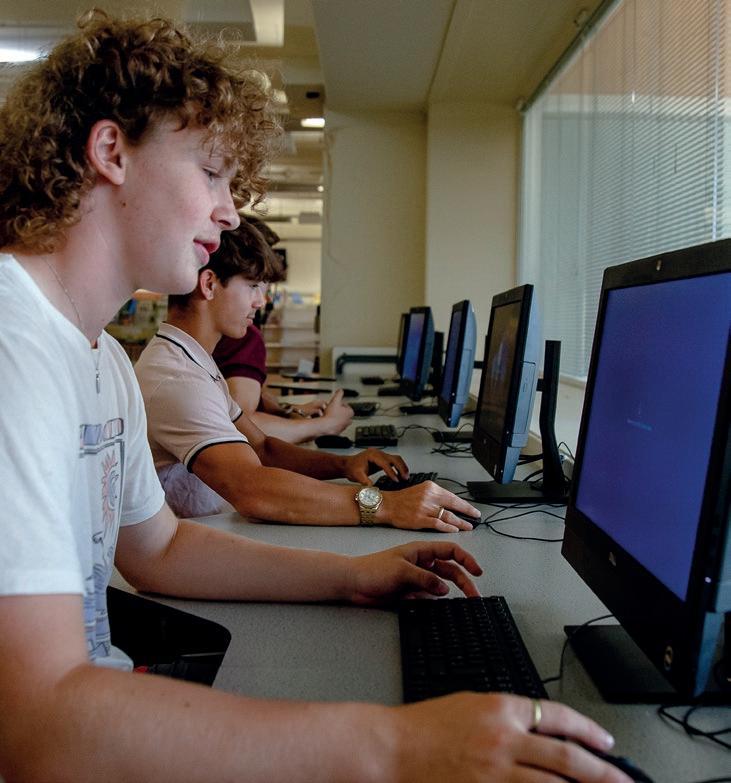
Major employers worldwide, such as Bloomberg and IBM, are keen to employ ICT graduates in systems development, information technology and communications in the IT sector. Others enter careers in the finance, communications and entertainment industries and the Ministry of Defence. Following a degree in Software Engineering, Computing Science or Games Technology, you could enter careers in software development or the computer games industry.
“Teachers are so helpful, easy to get along with and are always contactable via email which makes it so much easier to get help with the work.”
Treeve White, Exeter University, Computer Science
Languages
GCSE grade 5 across subjects including Maths. Ideally grade 6 in the relevant language at GCSE.
Typical A-level combinations include: English Literature or Language, a mixture of Arts and Science subjects.
Possible degree options include: European Business Studies, Languages.
A-level language study will equip you with a range of transferable skills that are highly valued by employers: communication, critical thinking and the ability to analyse, research skills and creativity.
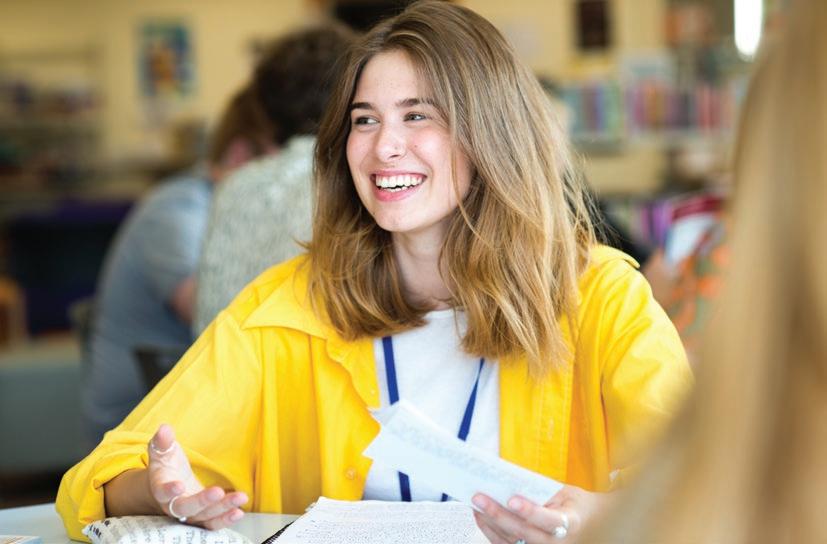
Our courses will prepare you for further study of languages and for career paths including teaching, translating, interpreting, diplomacy, journalism, business, logistics, finance, advertising and public relations.
“Overall, Spanish was the most interesting of my A-level subjects and the teachers at Cowes really made me passionate about Spanish culture, from film to politics.”
Bella Dixon, Newcastle University, Modern Languages and Business Studies
Studying French develops our ability to communicate with and understand this close-by nation. While studying this subject you will develop your four fundamental practical skills: reading, writing, listening and speaking in French. You will also broaden your understanding of French culture, linguistics and society, gaining a sensitive and in-depth understanding of the country and its ways of life and expression.
You will experience the rich diversity of Spanish culture, develop your language skills in reading, writing, listening and speaking and increase your understanding of the history of Spain. You will explore the social context of Spanish-speaking cultures and societies, also broadening your understanding of the Hispanic world by focusing on matters associated with multiculturalism and young people and their political engagement.
This programme offers you a broad study of the biosciences. You will develop your practical skills through fieldwork and the carrying out of experiments while gaining a fuller understanding of living matter. You will study life at several different levels, from molecules and cells to whole organisms and species, right up to communities and ecosystems.
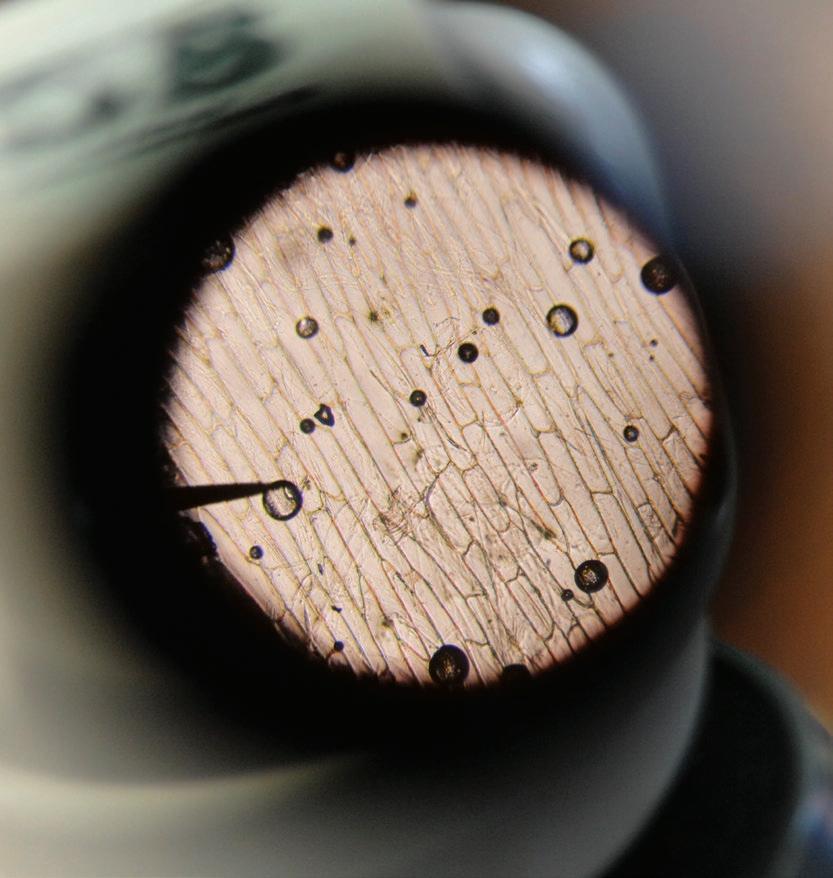
Development of practical skills in biology Foundations in biology Exchange and transport
Biodiversity, evolution and disease Communication, homeostasis and energy Genetics, evolution and ecosystems
Biology
GCSE grade 5 across subjects including English and Maths. GCSE grade 6 in triple or double science.
Typical A-level combinations include: Chemistry.
Possible degree options include: Biological/Life Sciences.
Students who take Biology have access to a huge range of degrees, including those leading to a definite career path (for example, Medicine, Dentistry, Veterinary Science, Pharmacy, Dietetics) and those based on research (for example, Biochemistry, Biomedical Materials Science, Pharmacology).
“The Biology teachers in sixth form were amazing and so supportive when I found things difficult.”
Nathan Rash, Portsmouth University, Biomedical Science
CHOOSE
Chemistry
GCSE grade 5 across subjects including English and Maths. GCSE grade 6 in triple or double science. You must be prepared for background reading and consolidation.
Chemistry
Typical A-level combinations include: Biology.
Possible degree options include: Chemical/Life Sciences.
Students who take Chemistry have access to a huge range of degrees, including those leading to a definite career path (for example, Medicine, Dentistry, Veterinary Science, Pharmacy, Dietetics) and those based on research (for example, Biochemistry, Biomedical Materials Science, Pharmacology).

“Being a Cowes SixthFormer has challenged me not just academically, but has allowed me to become the best version of myself, teaching me how to overcome obstacles –whatever they may be.”
Ben Simmonds, Imperial College London, Biochemistry
You will gain a sound background in all aspects of chemistry along with comprehensive practical training. This course will ensure you develop your interest in, and enthusiasm for chemistry, appreciating how society makes decisions about scientific issues and how the sciences contribute to the success of the economy and society.

Practical skills
Foundations in chemistry
Periodic Table and energy Core organic chemistry
Physical chemistry and transition elements
Organic chemistry and analysis aromatic compounds
This subject will give you a profound understanding of the fundamental laws that govern the universe. You will build on your knowledge of the laws of physics, applying your understanding to solve problems on topics ranging from subatomic particles to the entire universe. You will also have the opportunity to develop all relevant practical skills.
Practical skills
Foundations in physics
Forces and motion
Electrons, waves and photons
Newtonian world and astrophysics
Particles and medical physics

Physics
GCSE grade 5 across subjects including English. GCSE grade 6 in triple or double science and ideally GCSE grade 7 Maths.
Typical A-level combinations include: Mathematics, another science subject .
Possible degree options include: Engineering (mechanical, electronic/electrical and civil), Physics, Materials Science.
Physical Sciences degrees involve the practical application of Mathematics and Physics. If you are a very talented scientist/ mathematician, it is important that out of the four available sciences –Biology, Chemistry, Maths (which includes both Mathematics and Further Mathematics) and Physics – you should choose three.
“Although there is a big step up from GCSE I always felt supported in my studies and have progressed in a way I would never have imagined in my two years here.”
Thomas Gibbs, Surrey University, Automotive Engineering
Mathematics
GCSE grade 5 across subjects including English and GCSE grade 7 in Mathematics.
Further Mathematics
This course is only available to students studying A-level Mathematics with GCSE grade 8 or 9 Mathematics.
Mathematics/ Further Mathematics
Typical A-level combinations include: Physics, another science subject.
Possible degree options include: Engineering (mechanical, electronic/electrical and civil), Physics, Materials Science.
Physical Sciences degrees involve the practical application of Mathematics and Physics. If you are a very talented scientist/ mathematician, it is important that out of the four available sciences –Biology, Chemistry, Maths (which includes both Mathematics and Further Mathematics) and Physics – you should choose three.
“Teachers at Cowes Sixth Form helped me grow in confidence to gain a place at Oxford University to study Maths.”
Layla Jubb, St Hughes College Oxford University, Mathematics
This popular course will develop your skills in analytical, abstract and structured thinking. A-level Mathematics provides students with a thorough grounding in the mathematical tools and techniques often needed in the workplace. You will gain strong foundations in algebra, geometry, trigonometry and calculus that form the fundamental building blocks of the subject.
Algebra and functions
Coordinate geometry
Sequences and series
Trigonometry
Exponentials and logarithms
Differentiation Integration
Vectors
Decision – networks, algorithms, sorting Mechanics – forces, energy, motion Statistics – probability, data handling, testing hypotheses
A-level Further Mathematics is designed to broaden and deepen your mathematical knowledge beyond the range of A-level Mathematics. It must be studied alongside A-level Mathematics and will equip you with the foundation of skills needed to study mathematics at university. All students must study the core aspects and then choose one route from Statistics and Mechanics pathways.
Proof
Complex numbers
Matrices
Further algebra and functions
Further calculus
Further vectors
Polar coordinates
Hyperbolic functions
Discrete Mechanics Statistics
Working in a highly practical way, you will develop the skills to think logically and use theories to understand how economies work. At the centre of the subject is the question of how we divide up our scarce resources, and how these decisions affect us all – in other words who gets what and why? Economics is therefore the study of our society, as well as the activities of various groups and institutions within it.
GCSE grade 5 across subjects including English. Ideally grade 6 Maths.
Typical A-level combinations include: A mixture of arts and science subjects.
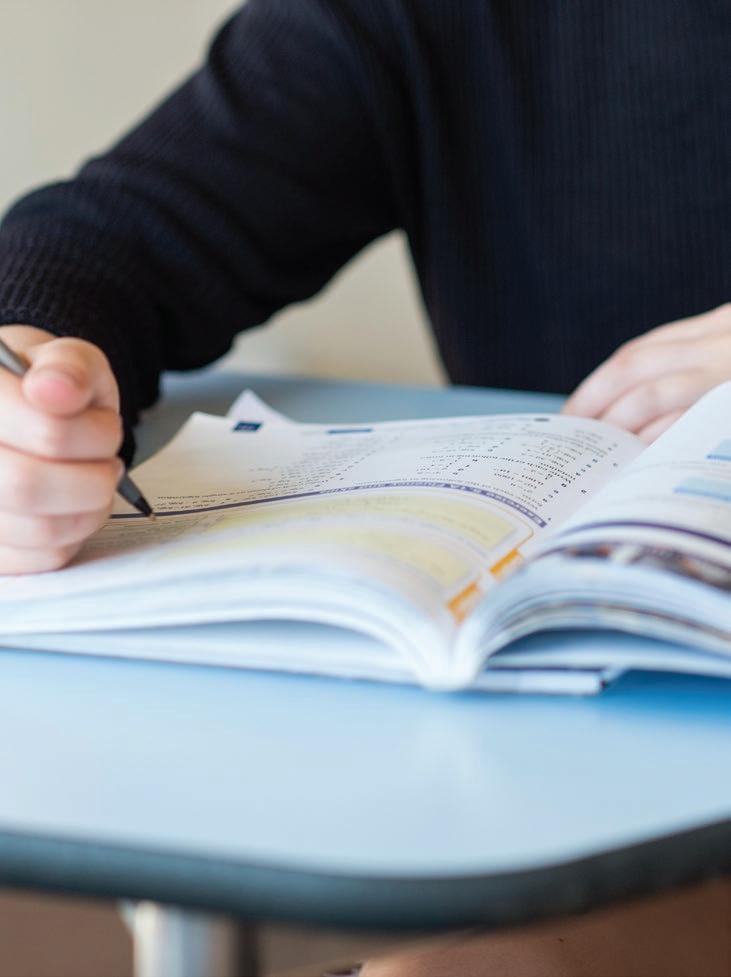
Possible degree options include: Economics, Law.
Following a university Economics course, you could enter a variety of careers, including banking, insurance, accountancy and the Civil Service. You could work as an economist, actuary, fund manager, financial analyst or dealer in the financial markets, or in government departments such as the Ministry of Defence.

“Here at Cowes, A-levels have only been part of my experience. From extracurricular activities to crucial skills for university; Cowes Sixth Form truly has educated me for life.”
Kieran Wetherick, Meron College, Oxford University, History and Politics
GCSE grade 5 across subjects including English and Maths.
Typical A-level combinations include: English, History, Sociology, Geography.
Possible degree options include: Philosophy.
Philosophy will teach you how to think, rather than what to think, and The Times has referred to it as ‘the ultimate transferable work skill’. Increasingly, employers value a philosophy qualification for its mature, logical and articulate students.
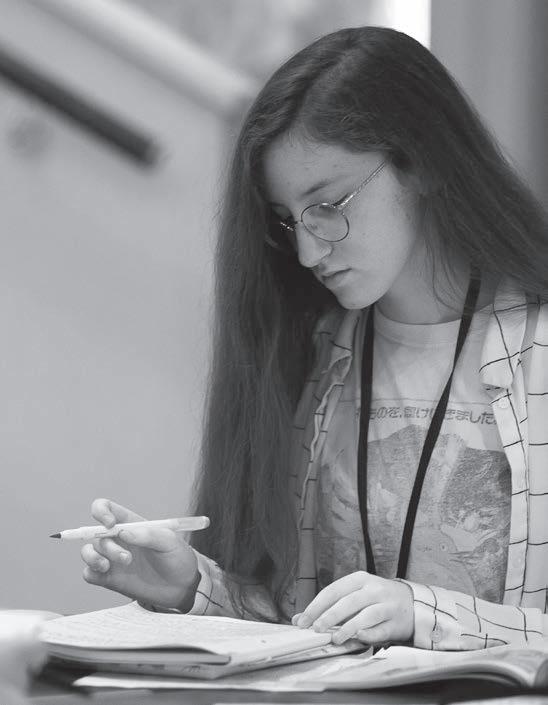
Following study in philosophy, you could enter careers in a broad range of professions including banking, journalism, law, advertising, the Civil Service, teaching, film, television and radio, information technology, accountancy and management.

Philosophy has become such a popular option at A-level because of its contribution to independent thinking and analytical skills as students grapple with some of the most profound questions on the planet. You will gain in-depth knowledge of the core areas of philosophy while pursuing your own interests through optional modules on the great philosophers and key philosophical topics. The course introduces three components: the philosophy of religion, the problem of evil and religious ethics.
Morgan Russell, Bristol University, French and Politics
“Teachers act as a supportive framework enabling you to properly engage with the subject.”

Psychology is the scientific study of the brain and behaviour. Human behaviour is complicated and psychology uses a number of different approaches in trying to explain behaviour. You will study topics such as social influence, memory, attachment, psychopathology and biopsychology and will learn how to carry out research and analysis and present information logically and coherently.
GCSE grade 5 across subjects including English and Maths. Ideally grade 6 Science.
Typical A-level combinations include: A mixture of Arts and Science subjects, Maths.
Possible degree options include: Psychology.
The various transferable skills acquired during this course can lead to a range of career options, from local government to marketing.
Following a psychology degree, you will be eligible, following further postgraduate training, for the myriad of psychology professions.
“Cowes Sixth Form has helped me to reach my full potential, I feel really supported to reach my future goals.”
Martha Ash, Cardiff University, Psychology
GCSE grades 5 across subjects including English and Maths.
Typical A-level combinations include: Philosophy, Geography, Psychology, English Language.
Possible degree options include: Sociology.
In addition to the transferable skills in research, presenting, essay writing and project management, a sociology pathway can help you to enter careers in diverse fields: central and local government, the probation, police and prison services, the Civil Service, human resources, business and finance, social services and social work, public and other research environments, race relations and social research.
“Choosing to study at Cowes Sixth Form was one of my best decisions because of the support for learning and Charter opportunities such as volunteering at the hospital and the summer school for medicine at Bristol University.”
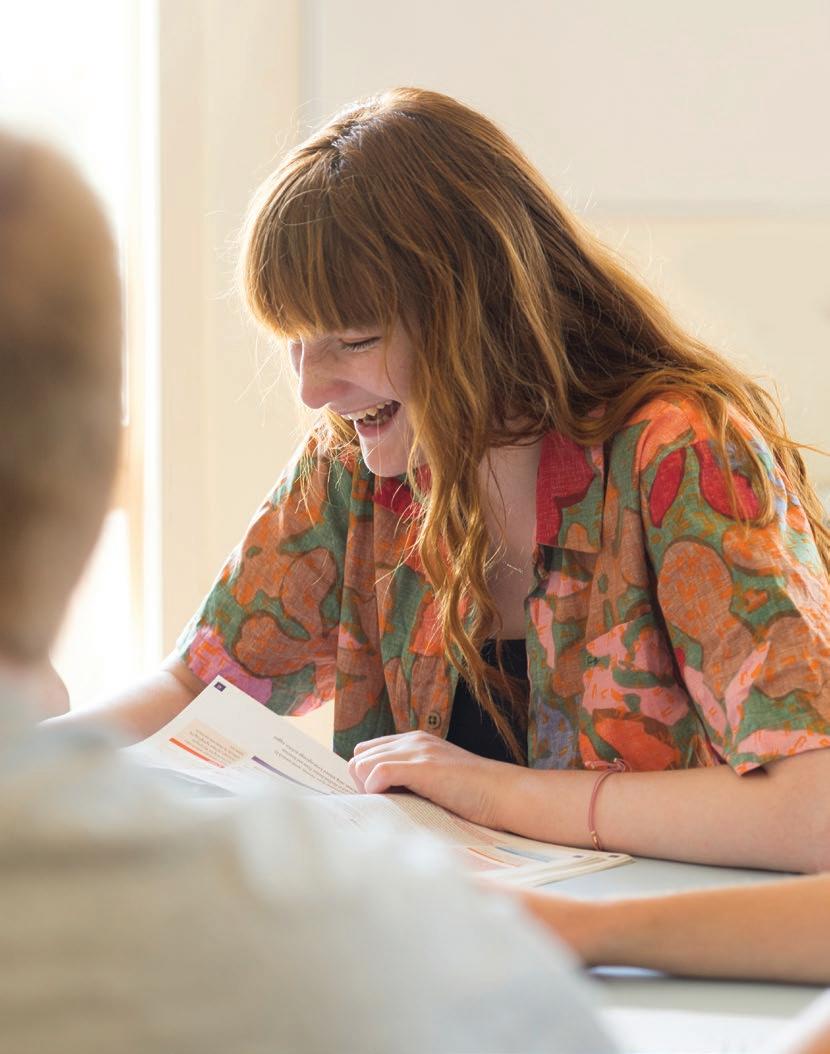
Amie Jupe, Bristol University, Medicine
Sociology is the study of human society. On this course, you will learn to understand why people behave in particular ways when they are part of a group, tribe, culture, religion, or nationality, exploring the ways in which people are influenced by their childhood and education. You will be introduced to the key themes of socialisation, culture and identity, as well as how power and influence can be exerted in society.
Our course allows you to play to your strengths and gain dynamic theoretical and practical skills for further education or work. You will learn to understand human behaviour and the human body, focusing on applied anatomy and physiology, sport and society, exercise physiology, biomechanical movement, sport psychology and the role of technology in physical activity and sport.
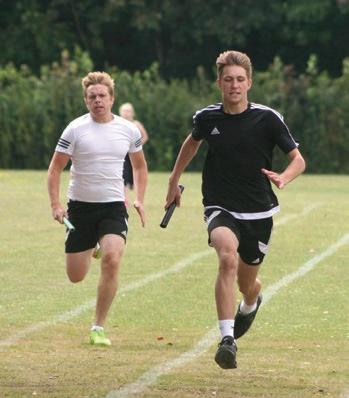
Physical Education
GCSE grade 5 across subjects including English and Maths. Ideally GCSE grade 6 in PE.
Physical Education
Typical A-level combinations include: Biology, Chemistry, Maths, Physics to enable Sport Science at university.
Possible degree options include: Sports Science.
PE courses will be suitable for you if you want to move onto further education/careers in the following areas: social sciences and sport policy, sport and physical activity, PE teaching, physiotherapy, personal training, sports coaching and allied professions.
Following successful completion, this course enable you to either gain employment in related fields or to continue studying at college or university.
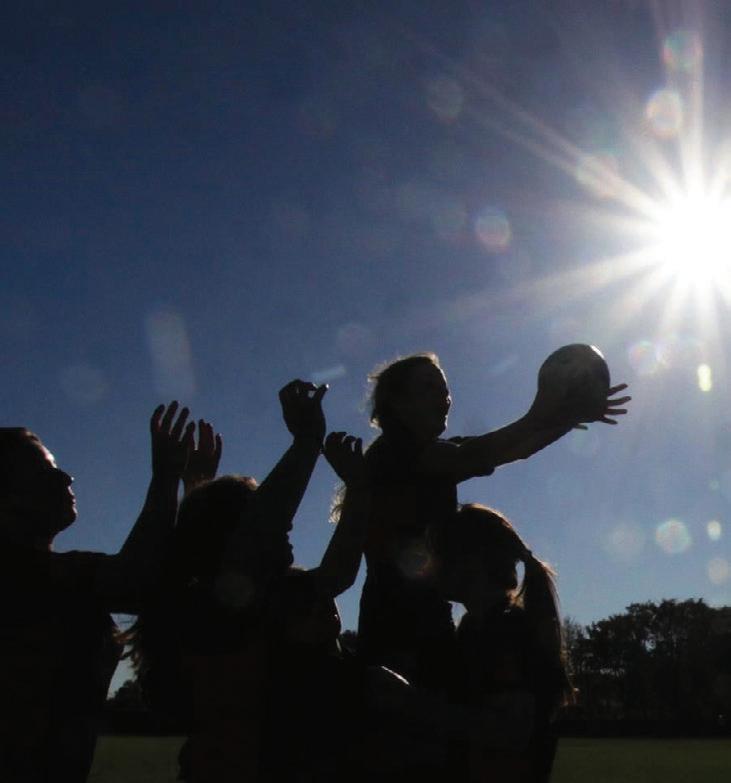
“The careers team helped me through every step of my university application and even advised me to apply for university summer schools which really helped me choose the best course for me.”
Oliver Clow, Bath University, Sports Science
“Cowes Sixth Form really helped me to develop my skills and build confidence and now I’ve secured a place at university studying medicine.”
Lauren Hill, St. Georges College, London University, Medicine
Universities look for students who not only have good grades, but grades in the right subjects for the course they want to apply for.
If you already know what you want to study at university, you should think about choosing subjects which give you the best possible preparation for your chosen degree course. If you’re not sure what you want to study at university yet, it’s important to choose subjects which will leave as many options open as possible.
Many courses at university build on knowledge and skills which students gain while still at school. For this reason, some university courses require you to have studied a particular subject already.
Science and Maths Degrees in sciences, technology, engineering and maths are sometimes referred to as STEM degrees. For these courses, universities often expect you to have studied specific subjects at A-level, or a specific combination of subjects. The sciences –chemistry, biology or physics –and maths, including further maths, are a good place to start. Many STEM degrees fall into one of three disciplines: biological and life sciences, physical sciences (which
includes engineering) and medicine, dentistry and veterinary sciences.
Music, photography, art, dance, drama, film-making, design and fashion are all examples of creative arts degrees. Studying similar subjects at A-level may be useful and you should consider what other preparations can support your choice. This could involve taking music performance grades, building up an art portfolio or attending an audition, workshop or interview. Whatever subject you’re choosing, make sure you check what additional experience and skills are required to study it.
At university you can study languages from around the world, from French, German or Spanish, to Russian and Japanese. There are also opportunities to study a language alongside a second subject as part of a joint honours degree. Some courses will require you to have experience of that particular language. For others, experience studying a different language may be enough and you may be able to start a new language from scratch.
Humanities degrees involve the study of human culture. English literature, history and philosophy are some examples. Some courses may require you to have studied the subject at A-level, which is often the case with history and English literature. Others have no specific requirements but may suggest taking related subjects as good preparation. Sometimes, universities want to see that you have built up your essay writing skills. It’s always best to check individual university requirements carefully.
Social sciences include anthropology, business, economics, geography, law, politics and sociology. These degrees involve the study of human society and social relationships. The topics social scientists study vary a lot, which means that subject requirements vary too. For example, maths may be considered good preparation for courses that involve frequent use of statistics, such as economics, but won’t be necessary for others. For some social science degrees, such as geography, some universities may expect you to have taken the same subject at A-level.
Art
Drama and Theatre
English Language
English Literature
Film Studies
Law
Mathematics (Further)
Music Technology
Philosophy and Ethics
Physical Education 35 Physics 29
Product Design 17 Psychology 33 Sociology
Spanish 26
